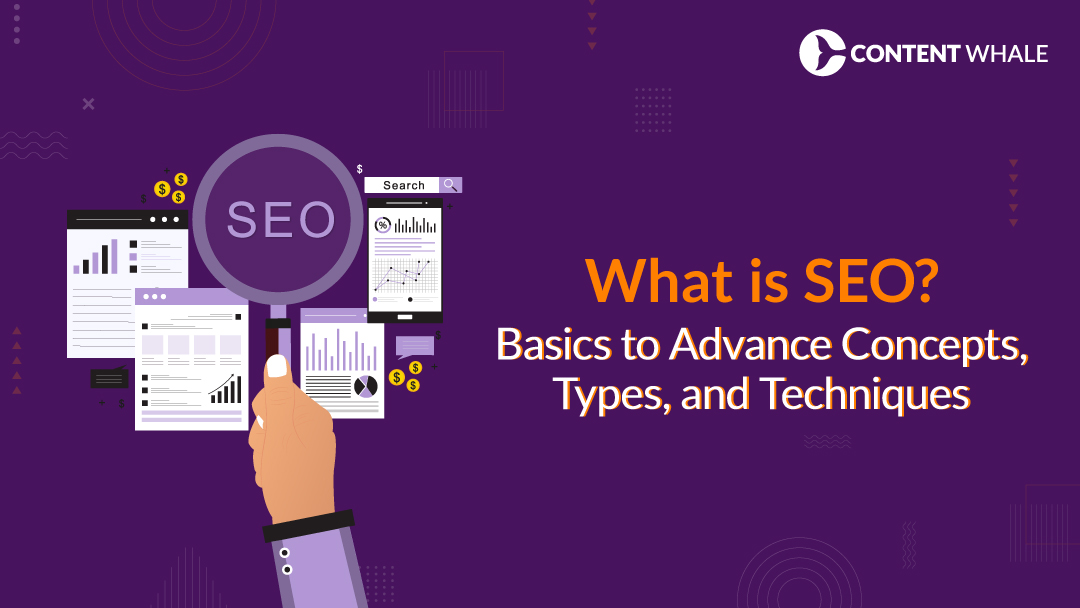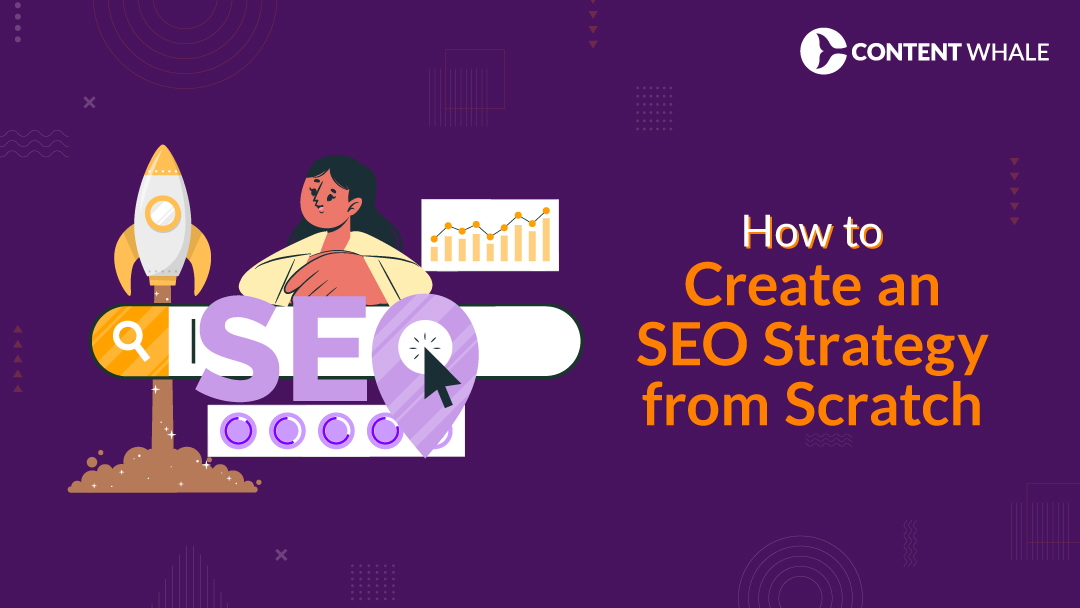What is SEO in the digital world? SEO, or Search Engine Optimization, serves as a foundational element of digital marketing, enhancing the visibility of websites across search engines like Google. Essentially, it acts as a crucial strategy for driving more organic traffic to a website, thereby increasing potential customer engagement and conversions.
For businesses, understanding what is SEO and how it works is pivotal. It involves optimizing various elements of your website—from the content you write to the HTML code underpinning your site—to ensure it ranks well in search engines. This optimization helps your site become more discoverable when potential customers search for keywords related to your products or services.
By grasping the SEO meaning in business, companies can significantly improve their online presence, making SEO an invaluable tool in today’s competitive market. Whether you’re a small business owner looking to learn how to do SEO, a marketer seeking a comprehensive SEO course, or just curious about SEO definition and examples, this guide will walk you through the basics to more advanced strategies, supported by search engine optimization examples to illustrate key points clearly.
In the upcoming sections, we will dive deeper into different types of SEO, practical techniques for optimizing your content, and real-world examples to demonstrate SEO’s effectiveness in various business contexts.
What is SEO? Why is SEO Important for Business?
1. Defining SEO and Its Business Impact
What is SEO? Search Engine Optimization (SEO) is the art and science of boosting a website’s presence on search engines. This concept is central to digital marketing, as it directly impacts how visible your business is to potential customers online. When executed effectively, SEO leads to higher traffic levels, better quality leads, and increased sales, which are vital for any business operating in the digital age.
SEO meaning in business extends beyond just getting to the top of search engine results; it’s about establishing a lasting digital footprint that enhances brand credibility and drives customer engagement. What is SEO in digital marketing? It’s a strategy that integrates with other marketing efforts to boost overall return on investment.
2. SEO’s Role in Customer Acquisition and Brand Recognition
High visibility in search engines translates to higher brand recognition. As more people come across your business online, the trustworthiness of your brand increases. This recognition plays a critical role in converting casual browsers into loyal customers. Furthermore, SEO strategies focus on attracting individuals who are actively seeking products or services like yours, making these strategies highly effective for customer acquisition.
Optimizing your content and website structure as per SEO guidelines means your site is more likely to appear to those who need your solutions. Techniques like keyword optimization, crafting compelling content, and building backlinks are all part of how to do SEO effectively.
In the following sections, we will further explore how these elements combine to boost your site’s search rankings and why continual learning through an SEO course might be beneficial. We will also provide search engine optimization examples and detailed SEO definition and examples to guide you through practical applications of SEO in business scenarios.
How Does SEO Work?
1. Understanding SEO Mechanics
What is SEO and how does it ensure your website ranks well on search engines? The process begins with search engines like Google, which use complex algorithms to determine the relevance and authority of web pages. By understanding and optimizing for these algorithms, businesses can improve their online visibility significantly.
The foundation of SEO is content creation that aligns with what users are searching for, which means understanding and integrating keywords effectively. For instance, a search engine optimization example involves using targeted phrases, such as “best outdoor gear,” in ways that naturally align with the user’s search intent.
2. Key Factors Influencing SEO
Several critical factors impact how well your website ranks in search results. These include:
- Keywords: These are terms that users enter into search engines. Your ability to research and use relevant keywords in your content is a cornerstone of what is SEO in digital marketing.
- Backlinks: These are links from other websites to your website. High-quality backlinks from reputable sites can significantly boost your SEO by showing search engines that your site is valuable and trustworthy.
- Content Quality: Search engines favor well-written, informative, and useful content. Understanding SEO definition and examples helps in crafting content that not only ranks well but also meets the needs of your audience.
- Site Structure: A well-organized website with clear navigation helps search engines index your site more effectively and improves user experience, which is crucial for maintaining high rankings.
3. Technical Aspects of SEO
Technical SEO covers the non-content elements of your site. This includes improving page speed, ensuring your site is mobile-friendly, and securing your site with HTTPS. A robust technical SEO setup ensures that search engines can crawl and index your website efficiently, which is crucial for achieving good rankings.
The interaction of these elements illustrates how to do SEO effectively, guiding potential customers to your website just when they need it most. As we dive deeper into the types of SEO, you’ll learn how each type addresses different aspects of these foundational elements, further enhancing your ability to optimize your site for search engines.
Types of SEO
1. Overview of SEO Varieties
Understanding the types of SEO is crucial for any digital marketing strategy, as each type addresses different aspects of websites and their interactions with search engines. Essentially, SEO can be categorized into three main types: on-page SEO, off-page SEO, and technical SEO. Each type plays a specific role in how effectively your website communicates with search engines and users, ultimately influencing your site’s ranking.
2. On-Page SEO: Content and Keywords
On-page SEO involves optimizing the elements of your website that are directly controllable within your web pages. This includes the use of relevant keywords to boost your site’s visibility and relevance in search queries. A key component is creating quality content that provides value to readers while incorporating what is SEO in digital marketing strategies. On-page elements like meta tags, headers, and images also need to be optimized to enhance the user experience and improve SEO performance.
3. Off-Page SEO: Building Trust and Authority
Off-page SEO focuses on increasing the authority of your domain through the act of getting links from other websites—a practice known as link building. Quality backlinks are a major factor in how search engines rank your site. Effective off-page SEO can establish your site’s reputation and credibility, which are significant for SEO meaning in business. Strategies include guest blogging, social media engagement, and influencer partnerships, all aiming to create a positive perception and authoritative presence online.
4. Technical SEO: The Framework of Your Site
Technical SEO refers to the non-content elements that influence your site’s readability by search engines and improve user experience. Elements like site architecture, mobile responsiveness, and site speed are crucial for both search engine crawling and user navigation. Ensuring that your website is accessible and indexable is a foundational aspect of how to do seo, without which even the best content may remain unseen.
Each type of SEO plays a unique role in enhancing your website’s ranking and visibility. By understanding and implementing what is seo and how it works across these types, businesses can ensure a comprehensive approach to SEO that covers all bases from content creation to technical infrastructure, providing a robust platform for digital marketing success.
Practical SEO Techniques and Best Practices
1. Implementing Effective SEO Strategies
To achieve effective results from what is SEO, it’s essential to apply a series of practical techniques and SEO best practices that enhance your website’s search engine ranking and visibility. This section covers actionable steps you can take to optimize your site comprehensively.
2. Keyword Research and Optimization
Keyword research is the cornerstone of successful SEO, as it informs the content strategy by identifying the terms and phrases your target audience is searching for. Use tools like Google Keyword Planner or SEMrush to find relevant keywords that can drive targeted traffic to your site. Once identified, incorporate these keywords naturally into your content, titles, and meta descriptions to improve your pages’ relevance and visibility.
3. Content Optimization: Quality and Relevance
Content is king in the world of SEO, and creating high-quality, relevant content is vital for engaging users and improving your site’s rankings. Make sure your content addresses the needs and questions of your audience, reflecting SEO definition and examples that resonate with their search intents. Utilizing SEO courses can also provide deeper insights into crafting compelling content that ranks well.
4. Building Quality Backlinks
Backlinks are a major component of what is SEO in digital marketing, acting as endorsements from other sites that your content is valuable and credible. Focus on building relationships with reputable sites related to your industry to gain high-quality backlinks. Techniques include guest blogging, collaborating on projects, and creating shareable infographics.
5. Mobile Optimization
With the increasing use of mobile devices to access the internet, ensuring your website is mobile-friendly is a must. Google uses mobile-friendliness as a ranking factor, so it’s important to optimize your site’s layout, load times, and usability for mobile users. This not only enhances user experience but also supports your SEO meaning in business, as improved user engagement leads to better conversion rates.
6. Regular Updates and SEO Audits
Search engines favor websites that are consistently updated with fresh content. Regular updates signal to search engines that your website is active and relevant, which can boost your rankings. Additionally, conducting regular SEO audits can help identify and rectify issues that might be affecting your site’s performance. This includes checking for broken links, evaluating page speed, and ensuring that all your content is optimized for types of SEO strategies you are implementing.
By integrating these SEO techniques and best practices, you not only improve your site’s visibility and user engagement but also enhance your overall digital marketing strategy. As you continue to learn how to do SEO effectively, these practices will provide a solid foundation for achieving sustained online success.
Learning SEO: Recommended Courses and Resources
1. Enhancing SEO Skills through Education
Expanding your knowledge of what is SEO and how to effectively implement its practices is critical for anyone looking to improve their digital marketing skills. Various SEO courses and resources are available that cater to different levels of expertise, from beginners to advanced practitioners.
2. Selecting the Right SEO Courses
When choosing an SEO course, it’s important to consider the curriculum’s relevance to current trends and its ability to offer practical, actionable advice. Look for courses that cover a broad range of topics, including types of SEO, SEO definition and examples, and search engine optimization examples. Courses offered by established digital marketing academies or known experts in the industry can provide valuable insights and up-to-date knowledge that align with what SEO is in digital marketing.
3. Online Resources and Tools
In addition to formal courses, numerous online resources can help enhance your understanding of how to do SEO. Blogs by SEO experts, webinars, YouTube tutorials, and community forums are great places to find free advice and ongoing learning opportunities. Websites like Moz, Search Engine Journal, and Backlinko offer in-depth articles, guides, and case studies that illustrate SEO meaning in business and show real-world applications of SEO strategies.
4. Leveraging SEO Tools
Practical experience with SEO tools is invaluable. Tools like SEMrush, Ahrefs, and Google Analytics offer functionalities that allow you to conduct keyword research, analyze backlinks, track your rankings, and get actionable insights to optimize your website. Most of these tools provide educational resources that help users understand and make the most of their features, aligning with practical SEO learning.
5. Following SEO Thought Leaders
To stay updated with the latest SEO trends and techniques, following thought leaders and influencers in the SEO community can be extremely beneficial. These experts often share their insights through articles, podcasts, and social media updates, providing followers with the latest information and innovative techniques in SEO.
By utilizing these educational resources and tools, you can build a solid foundation in SEO and continuously adapt to the evolving digital marketing landscape. This ongoing learning process not only enhances your technical skills but also enriches your strategic approach to what is SEO and its implementation in various business contexts.
SEO in Action: Real-World Examples
1. Demonstrating Effective SEO Strategies
To fully grasp what is SEO and its impact, observing real-world examples can be highly enlightening. This section delves into case studies where effective SEO strategies have significantly boosted business success, showcasing search engine optimization examples that have led to impressive improvements in traffic, brand visibility, and customer engagement.
2. The Independent Pharmacy
This UK-based online pharmacy implemented FAQ schema markup on nearly every landing page. This strategic move dramatically increased their visibility in Google’s “People Also Ask” boxes, leading to them achieving over 1 million monthly visits. Regular content updates were also pivotal in maintaining high SERP rankings.
3. Hawthorn Mall
By expanding its online platform with 51,000 new pages, this shopping mall dramatically increased its keyword rankings and website traffic. This strategy helped to integrate its brick-and-mortar presence with an eCommerce approach, significantly boosting its reach and customer engagement.
4. Applying SEO in Various Industries
These examples span across different industries, from e-commerce to B2B tech, highlighting the versatility and effectiveness of SEO strategies. They also reflect how businesses can integrate various types of SEO—on-page, off-page, and technical—to achieve comprehensive benefits.
Learning from these SEO definition and examples provides actionable insights that can be adapted and applied to your own business or marketing strategy, regardless of the industry. Each case underscores the importance of a tailored SEO approach that aligns with specific business goals and market demands, reinforcing what is SEO and how it works in practical, impactful ways.
Understanding and implementing effective SEO strategies is essential for any business seeking to enhance its online presence and achieve digital marketing success. As we have explored throughout this guide, what is SEO involves more than just keywords and backlinks; it’s about creating a comprehensive approach that improves visibility, drives traffic, and enhances user engagement across various platforms.
For businesses looking to thrive in the digital age, integrating SEO practices into your marketing strategy is not just beneficial—it’s necessary. As shown through various search engine optimization examples, SEO can lead to significant improvements in brand recognition, web traffic, and ultimately, business growth. Whether you are a small business owner or a marketing professional, starting with fundamental SEO courses and advancing through more complex types of SEO can provide the skills needed to compete effectively in today’s digital marketplace.
The digital marketing field, including what is SEO in digital marketing, is always evolving. Staying updated with the latest trends, tools, and techniques is vital for maintaining and enhancing your SEO efficacy. Regularly revisiting your SEO strategies, attending updated SEO courses, and keeping an eye on industry changes are all crucial steps in ensuring your SEO efforts remain effective and relevant.
By embracing SEO and continuously adapting to changes in search engine algorithms and user behavior, businesses can not only improve their current online performance but also set the stage for sustained success in the future. Engage with SEO today to transform your digital marketing efforts and foster long-term business growth.
How long does it take to see results from SEO?
The time it takes to see results from SEO can vary widely depending on several factors, including the competitiveness of your industry, the quality of your website, and the effectiveness of your SEO strategy. Generally, you can start to see noticeable improvements in 3 to 6 months, but SEO is an ongoing process that requires continuous effort and optimization.
Is SEO relevant for all types of businesses?
Absolutely, SEO is relevant for businesses of all sizes and types. Whether you run a local shop, an e-commerce website, or a large corporation, SEO can help you attract more website traffic, enhance user engagement, and increase conversions by making your site more visible to potential customers.
How often should SEO strategies be updated?
SEO strategies should be reviewed and updated regularly to ensure they remain effective. Search engines frequently update their algorithms, and staying current with these changes is crucial. It’s advisable to assess your SEO practices quarterly to adjust your tactics and respond to new trends and guidelines in what is SEO and how it works.
Can SEO guarantee my website will be the first on search engine results pages?
While SEO can significantly improve your website’s search engine ranking, no ethical SEO practice or SEO course can guarantee a number-one ranking on search engine results pages (SERPs). Search rankings depend on various factors, including the quality of your content, the competitiveness of your keywords, and the changing algorithms of search engines.
What are common SEO mistakes to avoid?
Some common SEO mistakes to avoid include using excessive or irrelevant keywords, neglecting mobile optimization, ignoring meta descriptions and title tags, and creating low-quality content that doesn’t address user intent. Understanding these pitfalls is essential for anyone involved in SEO meaning in business, ensuring strategies are both effective and aligned with best practices.
By addressing these frequently asked questions, businesses and individuals can gain a clearer understanding of what is SEO and how to implement it effectively, avoiding common mistakes and setting realistic expectations for their SEO campaigns.





